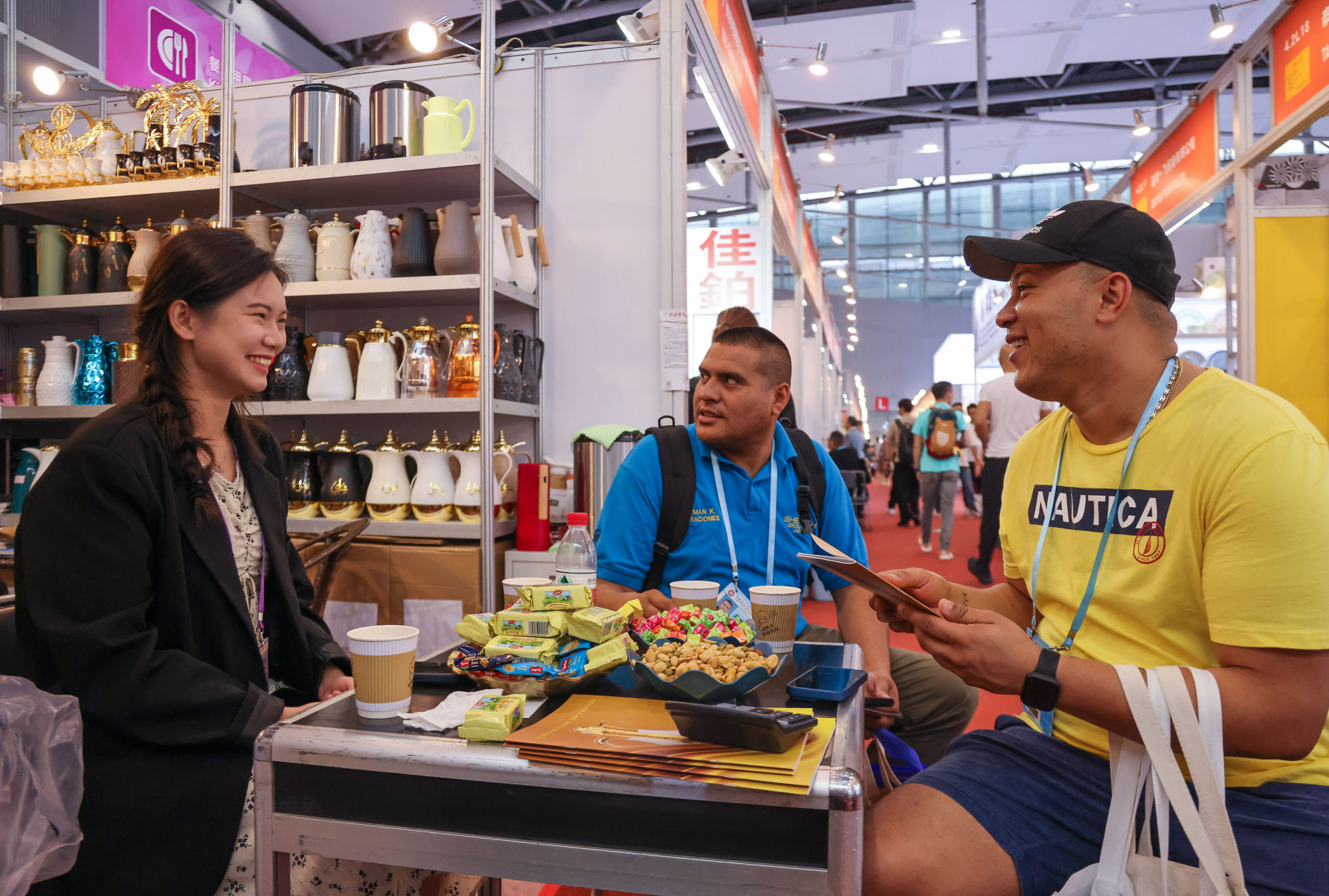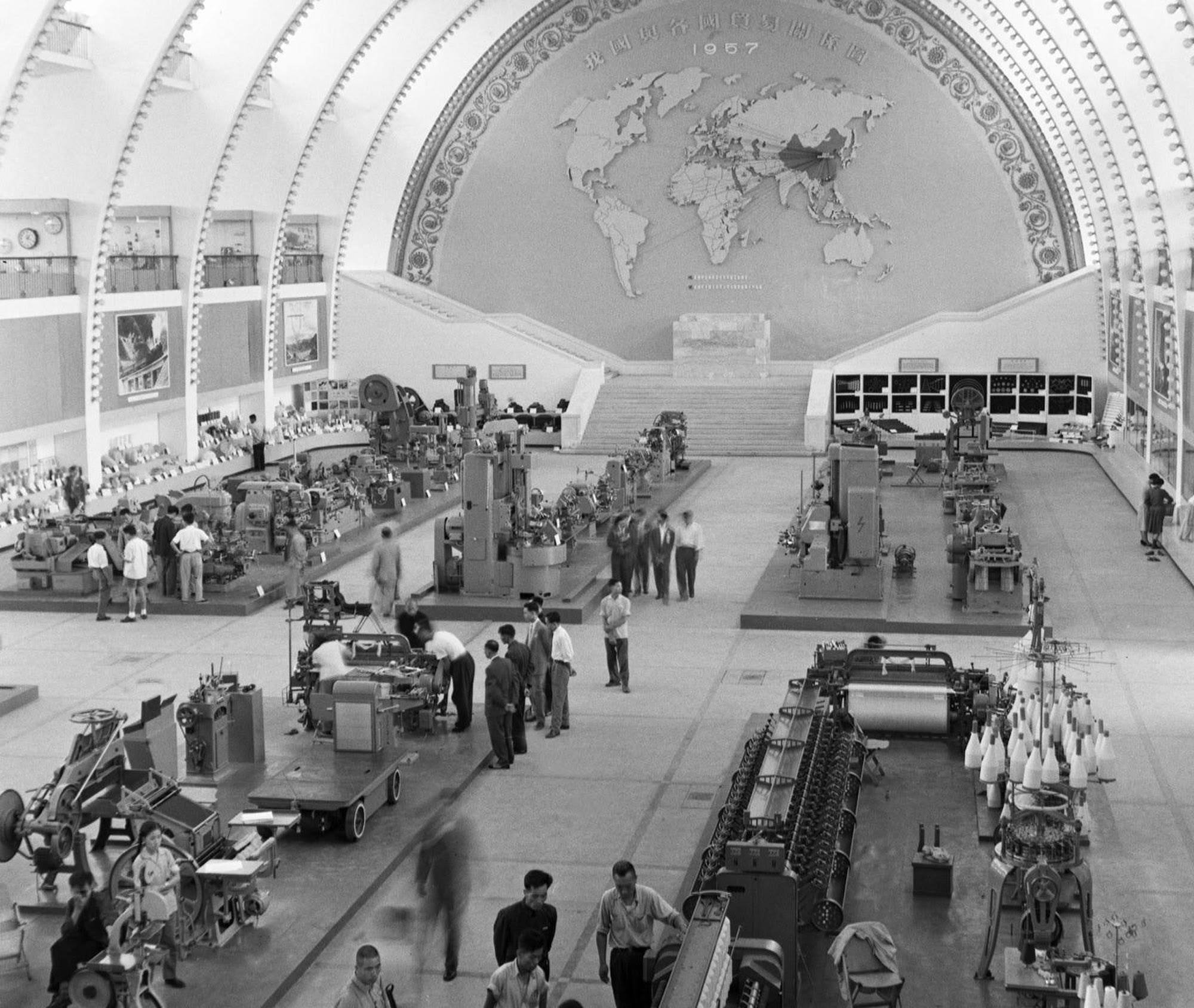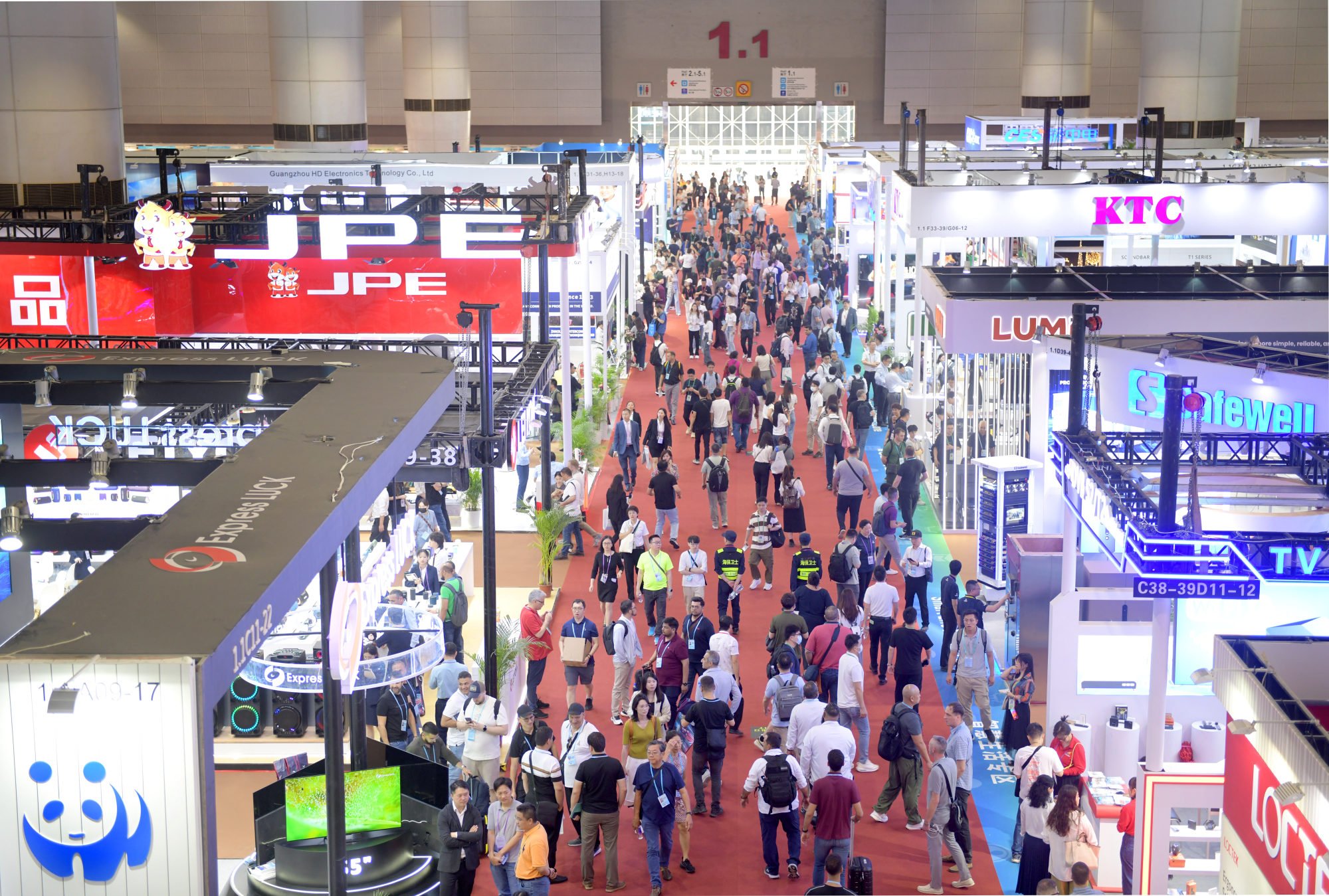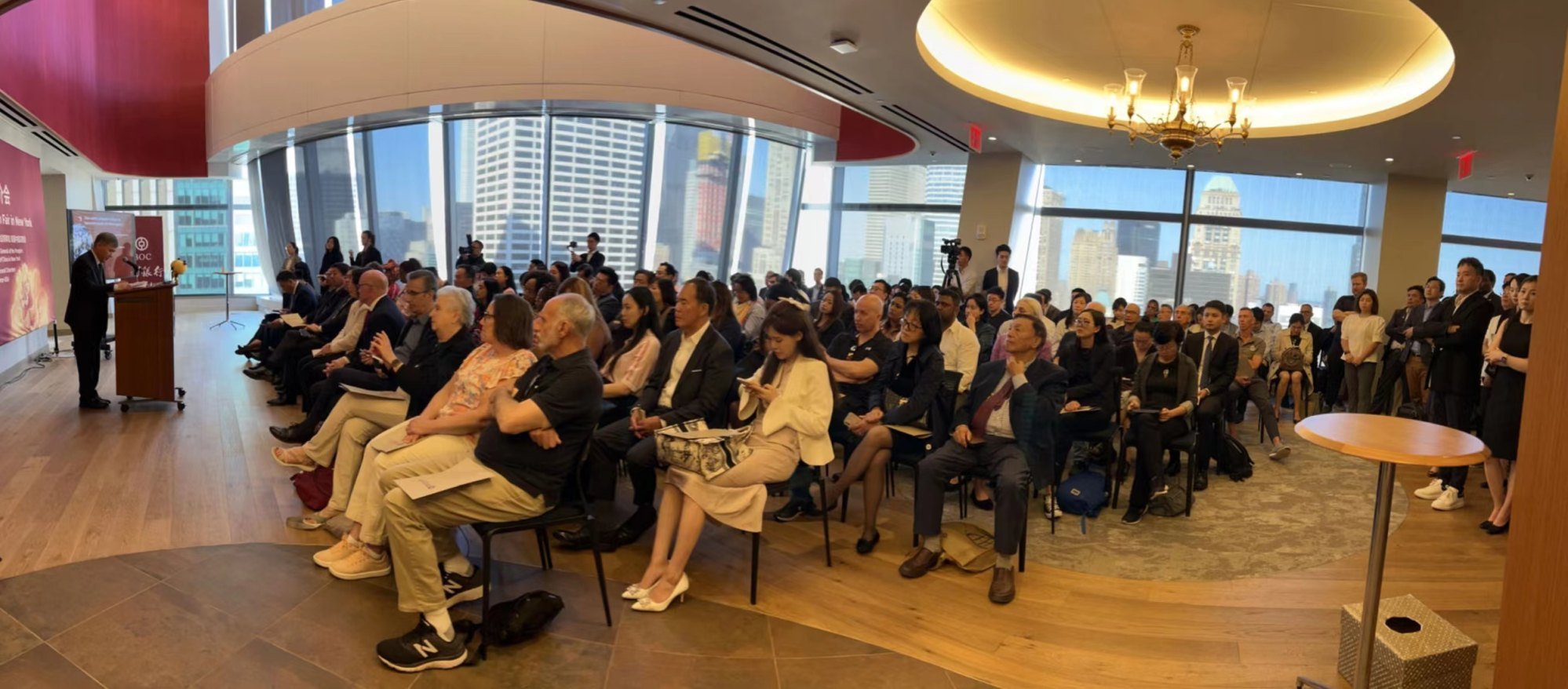When she started attending in 2002 she recalled pondering “where else I can go to get these products at these prices? If I go to Europe, everything is going to be more expensive”. She found manufacturers who could make high-quality items at the specifications she required for her business, Silver Brush Ltd.

In a room packed with seasoned and aspiring American buyers, all convened for a session promoting the fair coming this fall, Silver described the significance of the expo – formally, the China Import and Export Fair – in nurturing mutual understanding between the United States and China in trade relations.
A bustling epicentre of global trade and commerce, the fair attracts thousands of exhibitors from China and beyond displaying their products to buyers from around the globe. More than just a showcase, it is also an opportunity for businesses to venture into uncharted markets, strike pivotal deals and foster crucial partnerships across a diverse range of industries.
Even with the backdrop of US-China trade tensions, the fair event remains steadfast in its mission to connect American buyers with China’s expansive supply chain network, forging enduring bonds despite a rough geopolitical landscape.
“Getting more people to understand how codependent we are on other countries is probably one of the most important things that this group should be doing,” Silver said, adding that she planned to attend the expo in China in October.
While Washington pursues decoupling from China, Silver insisted that “there has to be a reality check”, citing the fair as evidence of the interdependence between the world’s two largest economies.

Held biannually in the spring and the fall, the Canton Fair was inaugurated in April 1957 in Guangzhou, when the city was still known as Canton.
Its primary objective was to circumvent the trade embargo the US had imposed in the 1950s during the Korean war, which lasted until 1972.
Initially focused on traditional goods like textiles, ceramics, and handicrafts, the fair began expanding in both scope and scale as China embarked on reform and the opening of its market in 1979, a milestone year marked by the normalisation of diplomatic relations between Beijing and Washington.
At the 1978 Canton Fair, more than 80 per cent of all 17,547 buyers from 98 countries and regions were Asians – mainly from Hong Kong and Macau. By 2018, when more than 200,000 overseas buyers attended, the share of Asian buyers dropped to 55 per cent and that of American and European buyers rose to 33 per cent, according to the China Foreign Trade Centre.
Then came the trade war which highly politicised the world’s most significant trading relationship. In 2018, then-US President Donald Trump imposed tariffs on Chinese imports worth $300 billion, accusing China of dumping cheap goods in the US market and buying too little in return.
The Canton Fair remains a hopeful destination for the future of the [US-China] relationship – both at the national level and people-to-people level
As tensions over the bilateral trade deficit escalated, export orders to the US at the Canton Fair fell by more than 30 per cent from the previous year in October 2018, while the number of American attendees dropped by 4 per cent.
The outbreak of Covid-19 dealt another blow, forcing the event to move online from 2020 to 2022. This coincided with US-China relationship plunging to its lowest in decades, with various geopolitical frictions further exacerbated by Trump’s successor Joe Biden sticking with his tariffs.
When the expo returned on-site in 2023, more than 12,000 Americans attended. The latest session, which concluded on May 5, drew 8,500 American buyers – the largest group from any one country, organisers reported.
Decades ago more than 40 per cent of China’s total exports came from the fair; today it accounts for less than 3 per cent. But while the US-China trade war continues, and expands to export controls and investment restrictions, some trade experts say the Canton Fair remains one of the largest platforms of “track- 2 commerce”, a term for unofficial interactions, between the two countries as they navigate cooperation amid times of mutual suspicion and geopolitical competition.
They contend that the trade fair that became a regular feature in a globalised economy has gained new prominence as economic relations are examined for potential security risks.

The Canton Fair provides a “neutral ground for businesses from both nations to explore potential collaborations and understand market needs”, Chris Pereira of the North American Ecosystem Institute, a New York-based business consultancy, said. He added that such events “can act as a counterbalance to political challenges, fostering a spirit of cooperation and mutual benefit”.
Pereira noted that the Canton Fair was where, for the first time, US and Chinese traders learned about each other’s products and opportunities in person after the normalisation of diplomatic relations in 1979 and where the journey of China becoming the US’s biggest trading partner began.
“Now that we are coming full circle, the Canton Fair remains a hopeful destination for the future of the relationship – both at the national level and people-to-people level”, he said, noting the current challenges Chinese companies encounter in fostering local connections in the US.
“Person to person exchanges like this are both vital to the relationship and, unfortunately, increasingly rare,” he added.
Jack Zhang, a political scientist at the University of Kansas, said that the fair would continue to connect Chinese suppliers with American consumers “despite the trade war”.
“Additionally, many consumer products are not subject to US tariffs or given tariff exclusions, so that helps too,” he said.
Zhang cautioned against overestimating the ability of these expos to substantially mitigate tensions. While they foster personal connections, he said, they would not help ease tensions in “any meaningful way”.
“This is something that policymakers on both sides need to work on addressing and not something that traders alone can resolve,” he said.
In an election year, the US is witnessing fervent political one-upmanship, with Democrats and Republicans vying to surpass each other in their hawkish stance towards China. Trump, who is running against Biden in a rematch for a second term, has vowed to impose a blanket 60 per cent duty on all Chinese imports.
Even so, Huang Ping, the Chinese consul general in New York, assured US company representatives at the promotional session in Manhattan that it remained a “good time to do business” with China.

“I don’t mean that we have overcome all the difficulties. We have still got more difficulties like more taxes have been put on Chinese manufacturing and products and we are still hearing about overcapacity in EV and many other things,” he said.
Due to the coming US elections, he acknowledged, “you will hear a lot in the next half of this year.
“But we are saying, for China and the US, we don’t have an option.”
The US remains China’s largest single-nation trading partner – though last year, Mexico surpassed China to become the biggest exporter to the US.
In 2023, the US imported roughly 20 per cent less from China than in 2022.
According to the latest Chinese customs data, in April imports from the US climbed by 9 per cent from the same period a year earlier, while exports dropped by nearly 3 per cent.
While the US expresses interest in engaging with China in non-strategic sectors, the lingering tariffs cast a shadow on the business landscape.
Despite these hurdles, participants at the Canton Fair said they remained undeterred, hoping that their economic ties to China will weather the storm and emerge resilient.
“We still trade very heavily with partners that we’ve been with for 20 or 25 years,” said Kevin Kuehl, senior vice-president of global sourcing at Big Lots, an American discount retail chain headquartered in Columbus, Ohio.

Kuehl, who began attending the expo in the mid-1990s, added that he had built on personal relationships he had made with officials at Chinese factories: “The politics don’t typically come into conversation, because we’re friends first.”
Dawn McKenzie, an online retailer of jewellery, apparel and accessories from Maryland, said she would hate to lose the “connections and relationships” she had made since starting to participate in the Canton Fair in 2018. “I’m hoping that we can improve our relations with China.”

